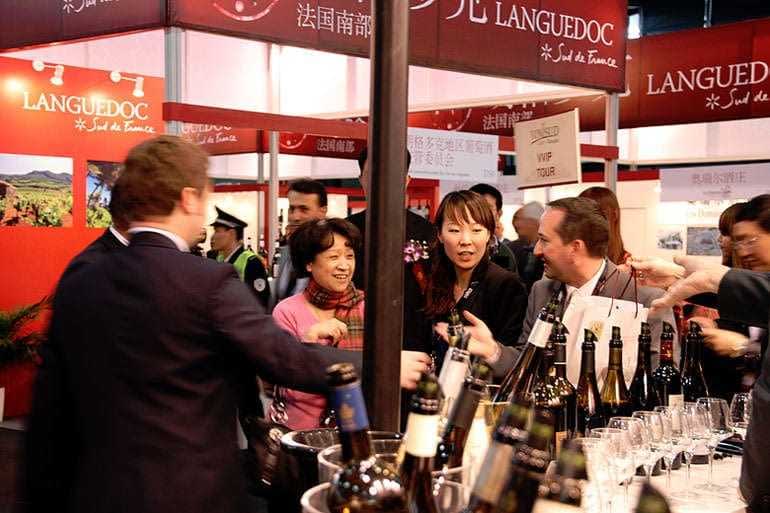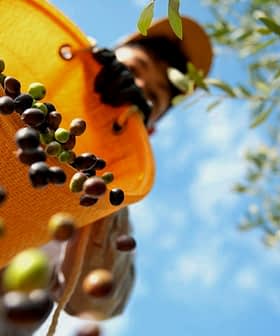
For the first time in Shanghai the SUDOLIVE Asia Olive Oil Exhibition was held in conjunction with their Mediterranean wine counterpart, VINISUD Asia, from October 29th to October 31st, 2014.
China is the world’s sixth largest importer of olive oil and the wave of olive oil demand reflects China’s soaring economic growth that has awakened taste buds and health awareness in the new class of Chinese consumers.
At the exhibition was a modest representation of olive oil producers and exporters from Mediterranean regions. Two of the exhibitors were Maison Albert from France and WOO (Wines Oil and Others, S.L.U) from Spain.
Beatrice Albert and Beatrice Pfister were representing France’s Maison Albert. Ms. Pfister said, “Chinese are already consumers of luxury French goods, fashion, cosmetics, food and wine. They want the best for themselves and their children.”

Maison Albert’s Domaine Bugadelles is located between Narbonne and the Mediterranean Sea, in Southern France at the heart of the Languedoc. Considered new in the olive oil industry, Domaine Bugadelles has just 25 hectares of olive trees. They produce organic olive oils from the Picholine, Lucques and Olivieres varieties with an acidity, Pfister said, of 0.35 percent.
Stephen Fang, a representative for WOO Spain said Chinese consumers are brand conscious. There are two major factors they look for in olive oil: First is the brand and the second is the acidity. A lower oleic acid seems to be a major selling point in China.
Fang pointed out that Chinese consumers are concerned with food safety. He said Chinese consumers perceive everything imported as safer than foods produced locally, and most Chinese equate higher price to higher quality.
WOO is a Spanish export company specializing in Spanish gourmet food, wine and olive oil. Other than specially-labeled Spanish olive oil, the company provides private labeled products to local importers. Fang, who has been with the company for four years, thinks it is getting more difficult to control the quality of olive oil in China.
When olive oil is sold in bulk to importers in China, you will never know what percentage of other oils are added to the pure olive oil, Fang said. Recent news of a cooking oil scandal in Taiwan was on the minds of buyers.
Problems aside, when asked why Chinese consumers are buying olive oil, one attendee said, simply, it makes a great gift. “Giving expensive gifts is not only important; it is a status symbol of the giver and displays the importance of the receiver, he said. “We purchase and present olive oil as gifts to important associates, business partners, friends and family on significant occasions like Chinese New Year, promotions or parties.”




